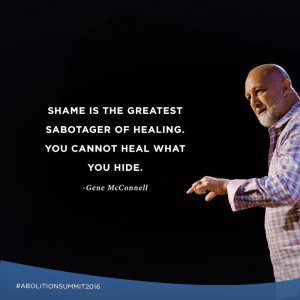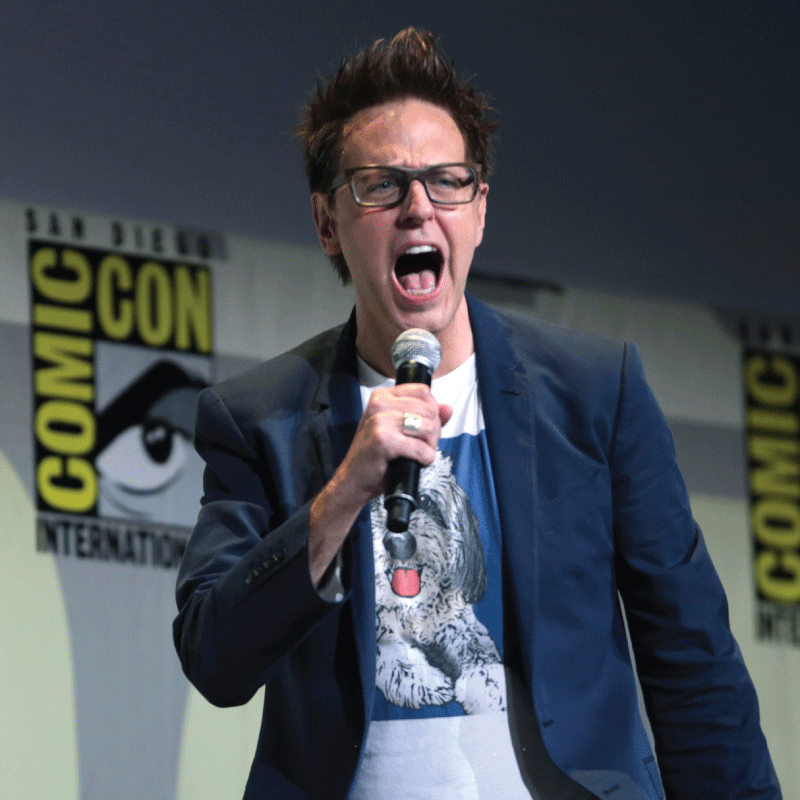Although I loved my wife and family, I was secretly enslaved to an addiction to pornography and prostituted women. I was afraid to tell anyone that I was feasting my eyes on images that were disgusting to the normal person. I was afraid of rejection. If anyone saw what I was consuming and doing in secret: they would walk out of my life, I would lose respect, and no one would love me. This fear kept me from getting help. So, for several years, no one knew—not even my wife.
The Exodus Cry Podcast
[podcast_episode episode=”13398″ content=”title,player,details”]
I was a youth pastor, married with three children. In the church, I was respected as a man who was alive but inside, I was dying. Dying for someone to know and love me for who I really was and wishing that I could tell someone. However, shame and fear were greater. Each time I would hear someone say how evil porn was, I would agree and be outspoken against porn and the sex industry. All the while, I felt deep shame that I was still struggling with it myself.
The messages about porn’s harm drove me deeper into secrecy because I was afraid of what people would think of me. My addiction to porn and sex increased, which required more graphic materials to achieve the same high. Finally, I came to a point where I needed help. Being arrested brought my shame into the open and I started my recovery in 1983.
The Barrier of Shame
Since that time, I’ve helped countless people in the journey to healing and freedom through my organization, Authentic Relationships International. You see, I believe that if we want to gain ground in this battle, then we need to change the hearts of the consumers. Based on my personal experience and the experience of so many men that I have helped along the way, I have seen that shame is one of the greatest barriers to bringing about change.
Shame is a belief about oneself as being defective, inadequate, unworthy, and unlovable.
Shame says that whatever bad thing they have done or have happened to them, it is because they are bad. This feeling keeps many consumers stuck in a cycle of perpetration because they feel that they can’t get help. As long as the shadow of shame is looming, everything stays in the dark.
It’s only when shame is removed that the problems of addiction, compulsion, sexual trauma, and sexual deviance can come out from the secret corners and into the light of day where real help and healing can take place.
Addressing Demand
My personal crusade started after I recovered from my own addiction back in the 1980’s. I spent years testifying before legislative bodies about the harms of sexually oriented businesses, helping get stronger laws in place, and debating porn producers.
In Los Angeles, I was awarded by local leaders as well as law enforcement for going after and shutting down porn distributors. I even helped build anti-pornography coalitions all over the U.S. The list goes on and on.
After a decade of working tirelessly, I looked back at my work and felt the weight of discouragement. Despite my unrelenting efforts aimed at impacting the production and distribution side of the industry, it continued to flourish unabated. All of the hard work and victories were only short-lived.
But, I didn’t stop fighting the problem. I simply shifted my focus to what I discovered was the real root of the problem—the demand side. The sad reality is: no matter how hard I or anyone else work to rid our society of pornography, prostitution, and sex trafficking, it will be here to stay as long as there are those who demand it.
The long-term win will come from putting large amounts of attention on addressing why men and women have an appetite for exploiting women and children, as well as dealing with legislation, law enforcement, and awareness.
For every news article about someone getting arrested for trafficking or purchasing sex, there are countless others you will never know about. This issue is so big that our law enforcement can barely scratch the surface. That’s because there will never be a shortage of people who are wounded or experience brokenness in their lives. Many of these individuals use pornography and prostitution in attempts to numb the pain or to fill the emptiness in their life.

The issue of shame is holding so many people back from being able to get the help they so desperately need.
Shouldn’t They Be Filled With Shame?
Some of you may be thinking that they should feel shame about what they are doing—that if you can make a person feel bad enough about their consumption, they will stop. In my experience, all this proves to do is confirm the messages of shame that are already inside and perpetuate the cycle.
Many people confuse the concept of shame with that of conviction. The conviction that comes from God is good. It helps people to repent from destructive behaviors and take a new path. Shame, however, is a tool of darkness that keeps sin hidden from view so that it can’t ever be dealt with.
Shame is a tricky thing, to say the least. Some may be wondering how it’s possible to prevent shame without condoning the behavior of consumers. In the coming weeks, I want to help unpack it a little more for you. There are some very practical ways to take action against shame and help those enslaved by sex addiction come into the light of recovery. So, stay tuned for part 2 of this blog series!
Gene McConnell is the founder of Authentic Relationship International. If you’d like to know more about the programs and initiatives of this organization, you can learn more here.

